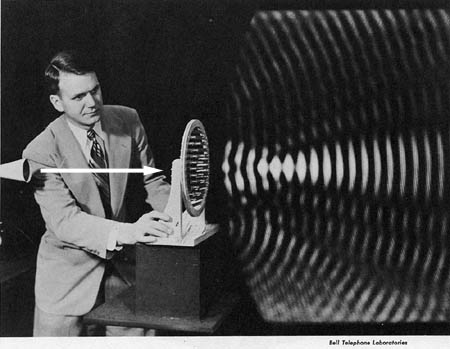256a-fall-2010/hw3: Difference between revisions
Appearance
| Line 11: | Line 11: | ||
=== Specification (part 1 of 3): naming + compilation === | === Specification (part 1 of 3): naming + compilation === | ||
* choose a name for your program | * choose a name for your program | ||
* get a framework compiling on your system (keep in mind the final deliverable must be compilable/runnable on the CCRMA machines | * get a framework compiling on your system (keep in mind the final deliverable must be compilable/runnable on the CCRMA machines) | ||
* might wish to start from the [http://ccrma.stanford.edu/courses/256a-fall-2010/code/hw3/VisualSine VisualSine] example from lecture (time domain waveform rendering) | * might wish to start from the [http://ccrma.stanford.edu/courses/256a-fall-2010/code/hw3/VisualSine VisualSine] example from lecture (time domain waveform rendering) | ||
* use the chuck_fft.* files [http://ccrma.stanford.edu/courses/256a-fall-2010/code/hw3/FFT found here] '''NOTE: this library ONLY works with single-precision floating point numbers (e.g., float)''' | * use the chuck_fft.* files [http://ccrma.stanford.edu/courses/256a-fall-2010/code/hw3/FFT found here] '''NOTE: this library ONLY works with single-precision floating point numbers (e.g., float)''' | ||
=== Specification (part 2 of 3): Visualizing the spectrum === | === Specification (part 2 of 3): Visualizing the spectrum === | ||
Latest revision as of 03:33, 12 November 2010
Homework #3: Sound Peeking
Due date: 2010.10.26 11:59:59pm (or thereabout), Tuesday.
In this assignment, you are to visualize sound in real-time, using OpenGL for the graphics programming.
Specification (part 1 of 3): naming + compilation
- choose a name for your program
- get a framework compiling on your system (keep in mind the final deliverable must be compilable/runnable on the CCRMA machines)
- might wish to start from the VisualSine example from lecture (time domain waveform rendering)
- use the chuck_fft.* files found here NOTE: this library ONLY works with single-precision floating point numbers (e.g., float)
Specification (part 2 of 3): Visualizing the spectrum
- implement short time fourier transform, and visualize the spectrum over time
- considerations:
- windowing (rectangular, hann, hamming)
- window size
- FFT size
- hop size (for now, hop size can equal window size)
- implement either a waterfall plot (like sndpeek) or a real-time scrolling spectrogram
Specification (part 3 of 3): Visualize something about the sound
- implement and visualize your choice of one of the following:
- vowel vs. consonant
- pitch tracking
- an audio feature
- use the sound to control some type of animation
- (or something of your choosing)
Note
- have fun with it!!!
- your code should compile and run on the CCRMA machines
- comment your code!
- choose your own coding conventions - but be consistent
- you are welcome to work together, but you must do/turn in your own work (you'll likely get more out of it this way)
Deliverables
turn in all files by putting them in your Library/Web/256a/hw3/ directory, and concise online documentation + readme
- 1) source code to the project (*.h, *.cpp, *.c makefile, etc.)
- 2) online page for your project (should be viewable at http://ccrma.stanford.edu/~YOURID/256a/hw3/). It should include:
- links to your files of various kinds
- instructions on building the project (for example, anyone in the class should be able to download
- a short README text section that:
- conveys your ideas/comments in constructing each program
- describes any difficulties you encountered in the process
- lists any collaborators
- 3) email Ge and Nick with the link to your web page, as a confirmation that you are submitting the assignment
